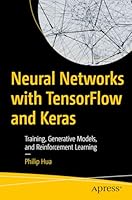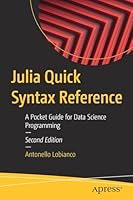
Learn Cocoa on the Mac, 2nd Edition
- Length: 424 pages
- Edition: 2
- Language: English
- Publisher: Apress
- Publication Date: 2013-05-29
- ISBN-10: 1430245425
- ISBN-13: 9781430245421
- Sales Rank: #3599418 (See Top 100 Books)
The Cocoa frameworks are some of the most powerful for creating native OS X apps available today. However, for a first-time Mac developer, just firing up Xcode 4 and starting to browse the documentation can be a daunting and frustrating task. The Objective-C class reference documentation alone would fill thousands of printed pages, not to mention all the other tutorials and guides included with Xcode. Where do you start? Which classes are you going to need to use? How do you use Xcode and the rest of the tools?
Learn Cocoa for the Mac, Second Edition, completely revised for OS X Mountain Lion and XCode 4, answers these questions and more, helping you find your way through the jungle of classes, tools, and new concepts so that you can get started on the next great OS X app today. Jack Nutting and Peter Clark are your guides through this forest; Jack and Peter have lived here for years, and will show you which boulder to push, which vine to chop, and which stream to float across in order to make it through. You will learn not only how to use the components of this rich framework, but also which of them fit together, and why.
Jack Nutting’s approach, combining pragmatic problem-solving with a deep respect for the underlying design philosophies contained within Cocoa, stems from years of experience using these frameworks. Peter Clark will show you which parts of your app require you to jump in and code a solution, and which parts are best served by letting Cocoa take you where it wants you to go. The path over what looks like a mountain of components and APIs has never been more thoroughly prepared for your travels. In each chapter, you’ll build an app that explores one or more areas of the Cocoa landscape. With Jack’s and Peter’s guidance, the steep learning curve becomes a pleasurable adventure. There is still much work for the uninitiated, but by the time you’re done, you will be well on your way to becoming a Cocoa master.
What you’ll learn
- How to effectively use Xcode to make your own Cocoa applications—this is much more than just a quick introduction to Cocoa!
- How to best use MVC architecture concepts in a Cocoa application
- Which classes, of the dozens included in Cocoa, are truly central to Cocoa development.
- How the various pieces of the Cocoa frameworks fit with each other and into the MVC architecture
- Which parts of Cocoa truly enable “visual programming”, letting you reap the benefits of proven, reusable code libraries that Apple gives you for free
- How to recognize recurring design patterns used throughout Cocoa, such as delegation and key-value coding, and put them to proper use in your own code
- Where some of the deeper technologies, like Core Data and Cocoa bindings, fit into your app
- How to use the facilities provided in OS X to create software that distributes itself automatically among all available CPUs, improving the user experience for your users.
- How to approach Cocoa from different programming environments
Who this book is for
Anyone with a basic understanding of object-oriented programming who wants to try out OS X app programming, as well as iPhone developers who want to extend their knowledge of Cocoa touch to include the Mac-specific technologies included with Cocoa.
Table of Contents
Chapter 1. Must Love Cocoa
Chapter 2. Hello, World
Chapter 3. Lights, Camera… Actions! (and Outlets, too)
Chapter 4. The First Call to Action
Chapter 5. GUI Components
Chapter 6. Using Table Views
Chapter 7. Cocoa Bindings
Chapter 8. Core Data Basics
Chapter 9. Core Data Relationships
Chapter 10. Search and Retrieve Core Data with Criteria
Chapter 11. Windows and Menus and Sheets
Chapter 12. Document-Based Applications
Chapter 13. Exceptions, Signals, Errors, and Debugging
Chapter 14. Drawing in Cocoa
Chapter 15. Advanced Drawing Topics
Chapter 16. Working with Files
Chapter 17. Concurrency
Chapter 18. Future Paths







